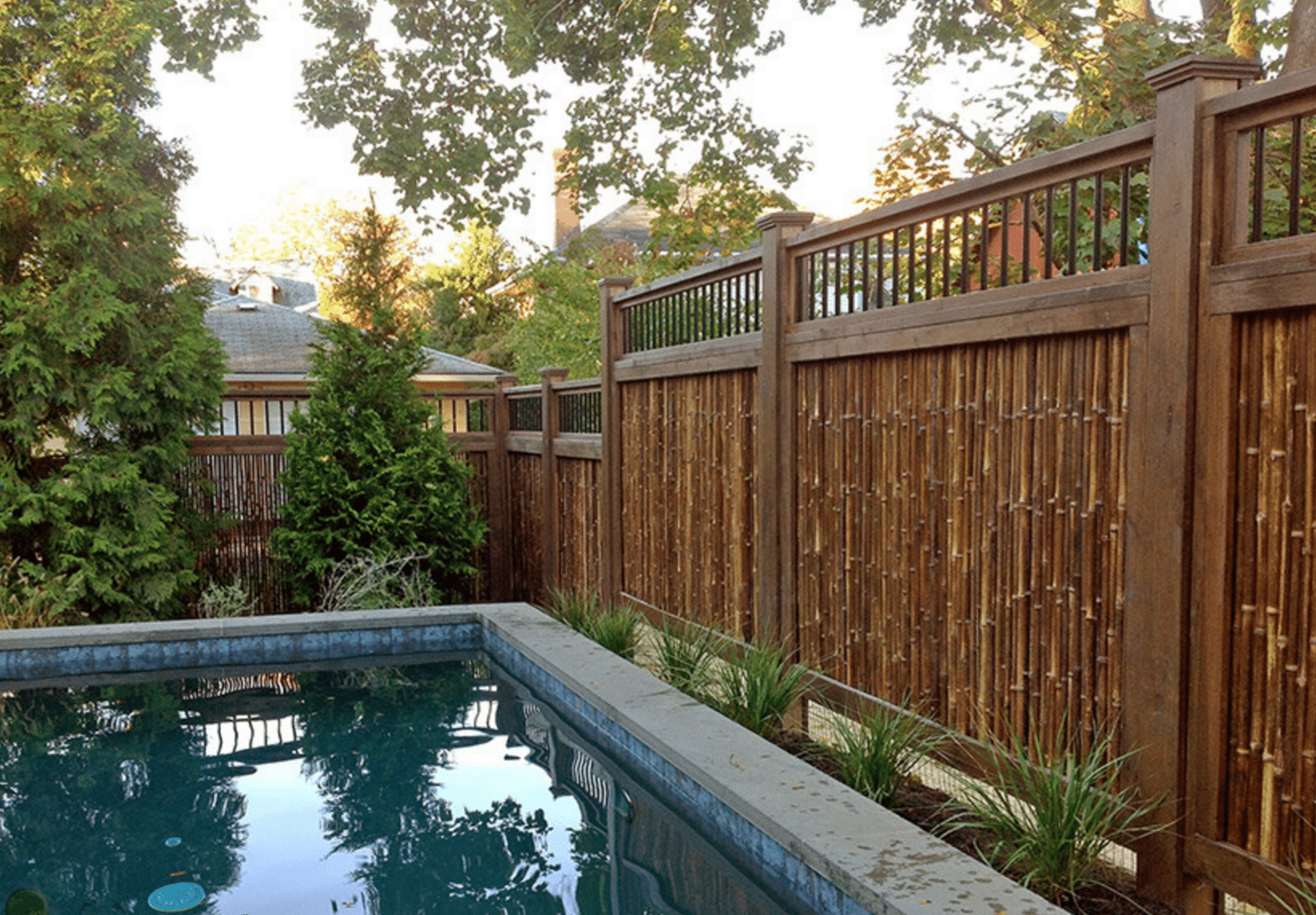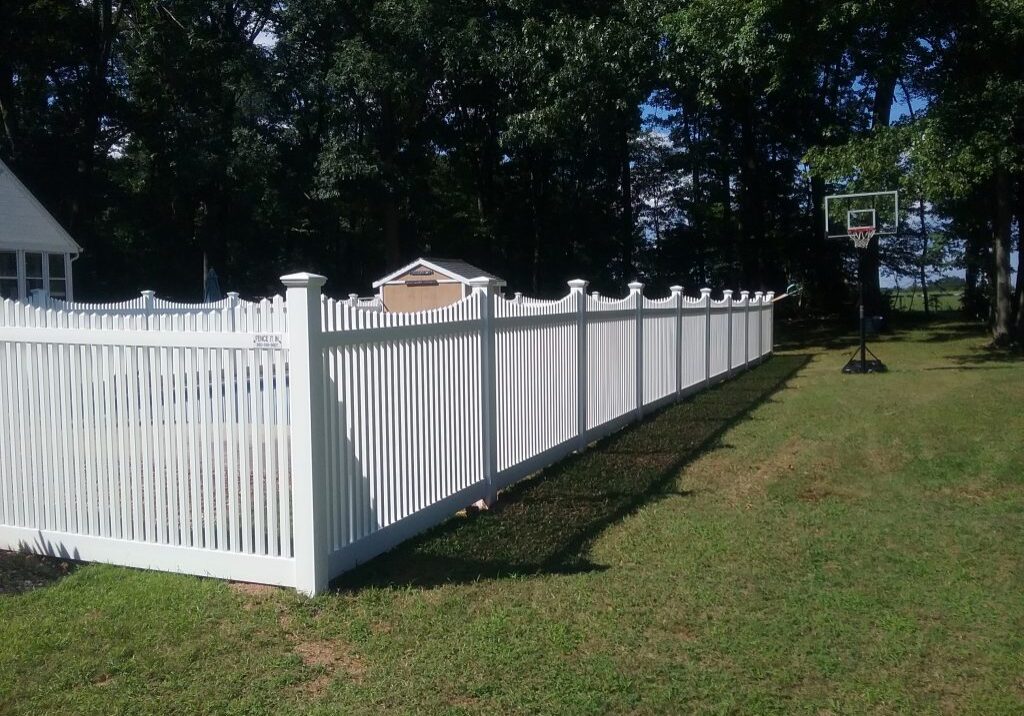Featured

As sustainability comes to be a significantly important consideration for property owners, more people are transforming to environmentally friendly fencing products. Whether you're constructing a fencing for privacy, safety and security, or visual purposes, selecting products that reduce ecological impact is a wonderful way to contribute to a much healthier world. Right here's a check out the leading eco-friendly fencing products offered today and their advantages.
- Bamboo Fencing: Sustainable and fast-growing. Bamboo is among the most lasting fencing materials on the market. Unlike typical timber, bamboo is extremely fast-growing, which suggests it can be gathered without diminishing woodlands. This makes it a very renewable energy, with some types maturing to 3 feet in a single day.
Ecological Benefits: Bamboo absorbs more carbon dioxide than lots of other plants, aiding to balance out greenhouse gases. Its rapid development rate suggests it can be harvested consistently, making it a renewable product. Toughness: Bamboo fences are naturally immune to bugs and degeneration, particularly when appropriately treated, lowering the need for chemical therapies. Visual Charm: Bamboo supplies an unique, natural appearance that enhances both contemporary and typical landscape design styles. While bamboo is a wonderful alternative, it's crucial to ensure that the bamboo made use of is responsibly sourced to prevent adding to environmental degradation.
- Recycled Metal Secure Fencing: Multiple-use and sturdy. Recycled metal fence, such as aluminum or steel, uses an environment-friendly alternative to traditional wood fences. These metals are typically made from recycled products, decreasing the demand for new mining and the environmental impact connected with drawing out basic materials.

Environmental Benefits: Steels like aluminum and steel are 100% recyclable, suggesting they can be reused and repurposed forever without shedding top quality. Durability: Metal fencings are unbelievably long lasting, resistant to weather, parasites, and put on, making them a long-lasting option that doesn't need to be replaced regularly. Low Upkeep: Recycled steel fencings call for very little maintenance and don't need to be painted or secured routinely, lowering the need for additional chemicals. The primary disadvantage is that steel fencings might not offer the same privacy as timber or vinyl choices, as they can have spaces depending upon the design.
- Recycled Timber Fencing: Natural and lasting. For those who love the timeless look of wood however desire an environment-friendly alternative, recycled wood secure fencing is an exceptional choice. This product is made from recovered timber from old structures, pallets, or perhaps furniture, drawing away these materials from landfills.
Ecological Advantages: Utilizing recycled timber avoids the requirement to reduce new trees, helping to lower and save forests deforestation. Visual Charm: Recycled wood uses a rustic, natural look and can be tailored to suit any kind of home design. Sustainability: Considering that it is sourced from existing timber items, recycled timber does not need brand-new handling, which reduces power intake and carbon exhausts. While recycled timber fences are an eco-friendly choice, they may need more upkeep gradually than metal or bamboo fences, as wood can be prone to degeneration and insects otherwise appropriately treated.

- Living Fences: Natural and Environment-friendly. Living fences, which are made from thick growings like hedges, trees, or bushes, offer a entirely all-natural and environmentally friendly choice to conventional fencing products. These fences not only provide privacy however also boost your garden with gorgeous plant.
Ecological Advantages: Living fencings can absorb co2, give habitat for wild animals, and boost air high quality. Noise Reduction: Thick plantings can act as natural , minimizing website traffic sound or various other undesirable noises. Aesthetic Appeal: They add a soft, all-natural visual to any kind of residential property and can be customized to fit any type of style. While living fencings are environment-friendly, they do call for regular upkeep such as pruning, watering, and occasionally pest control.
- Hemp Fencing: Strong and naturally degradable. Hemp is one more sustainable material that has actually made its way right into the secure fencing market. Hemp fencings are made from strong hemp fibers that are woven with each other to produce durable and environment-friendly panels.
Environmental Advantages: Hemp expands rapidly and requires marginal water, making it a resource-efficient plant. The product is naturally degradable and can be composted when no more needed. Stamina and Toughness: Hemp fencing is weather-resistant and remarkably solid, making it suitable for many environments. Sustainability: Hemp farming calls for fewer pesticides and plant foods than traditional crops, making it an environmentally liable choice. However, hemp fence may not be as commonly available as other materials, depending upon your location.
Verdict: Lasting Options for every single Demand. Choosing eco-friendly fencing materials is an excellent means to lower your ecological footprint while still attaining the personal privacy, protection, and visual you want. From fast-growing bamboo to recycled wood and metal, there are a range of sustainable options that can help you produce an attractive, useful fencing while supporting a healthier world. By thinking about elements such as toughness, upkeep, and environmental impact, you can pick the very best environmentally friendly fence product for your demands and lifestyle.
Latest Posts
Explore Montclare Auto Repair’s Most Popular Auto Repairs and Why Drivers Rely On Them
Published May 13, 25
1 min read
Join WyHy FCU – Exclusive Benefits for Your Money Goals
Published May 13, 25
1 min read
Full Circle Strategic Marketing's Experience Throughout Diverse Industries
Published May 12, 25
1 min read
More
Latest Posts
Explore Montclare Auto Repair’s Most Popular Auto Repairs and Why Drivers Rely On Them
Published May 13, 25
1 min read
Join WyHy FCU – Exclusive Benefits for Your Money Goals
Published May 13, 25
1 min read
Full Circle Strategic Marketing's Experience Throughout Diverse Industries
Published May 12, 25
1 min read